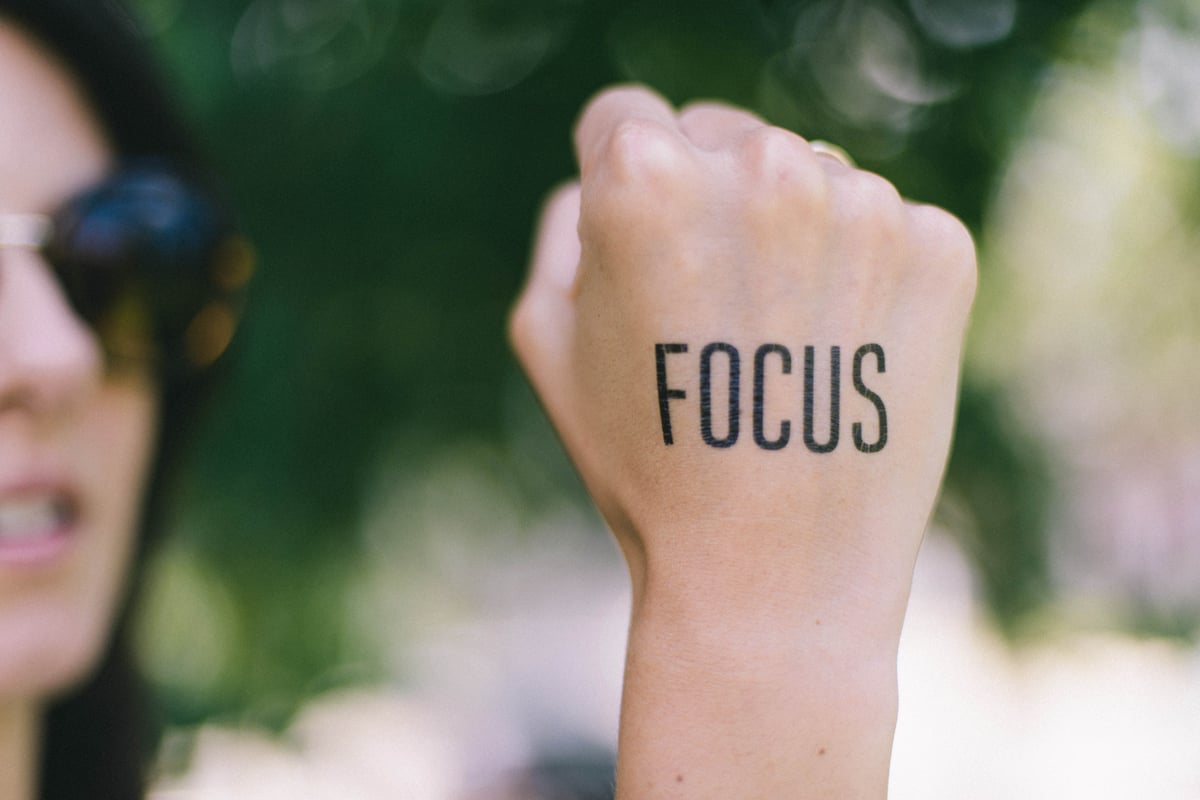Levy season is notorious for sneaking up on schools and government entities. As we stated in our...
Dealing with Distraction: Mastering the Power of Focus
![]()
One of the unfortunate realities of modernity is the constant and ever-looming potential for distraction. Distractions constantly surround us and seem to work in 24-hour shifts. To combat distractions, cutting edge technology and consumer marketing strategies consistently attempt to promote methods and products with the goal of helping us to simplify and focus.
However, most find it nearly impossible to devote their complete attention to one single cause at any given moment. In fact, the very technologies that attempt to deliver much-needed relief usually provide the opposite—more distraction.
Distraction is so ingrained into our present culture that it has become the de facto operating system for millennials and baby boomers alike. No matter how hard we try, it seems that we simply cannot escape the death grip of distraction.
Whether we truly see their disastrous effects, remain blind to them, or (worse) fail to admit them, lack of focus and constant distraction weigh heavily on our relationships, our sense of accomplishment, our ability to remain internally motivated and our ability to persevere through difficulty.
Transcending the Cycle
Following an honest period of assessment and reflection, most would cite distraction as a major hurdle on their journey to professional or personal success. It seems that the easiest thing in the world is to be distracted.
Despite the difficult circumstances that challenge us both internally and externally, there is a path out of the complex cycle of distraction. While we will never completely eliminate distractions from our lives, we can begin to train with strategies to achieve a more focused presence. These concepts will certainly benefit those who choose sharpen and nurture them.
After much trial and error, I have identified several habits and practices that helped to spark a deeper and more meaningful commitment to presence in my own life. They are easy to implement and require minimal resources. They will, however, require complete commitment and mental application.
If you aspire to decrease the disruption and damage of distraction in your own life, give these practices a try.

The Three Breaths Rule
Our breathing is one of the gatekeepers to our emotionality. This is most recognizable in stressful situations or situations where we find ourselves fearful of potential harm.
Naturally, the rapidity our breath in response to brisk changes (like an increase in epinephrine) begins to increase. It’s not uncommon to find ourselves “out” of breath in these situations, even though we haven’t done anything physically exerting.
Creating an awareness of the power of our breathing should be considered step one in our battle with distraction.
To harness this power, I prescribe the following protocol. At the onset of every meeting, task, conversation (or any other scenario where our focus might be compromised), take three deep, conscious breaths.
These three breaths act as a mental “reset,” an outward acknowledgement of the need for focus. We are priming our bodies and our minds for enhanced concentration through purposeful action. Inevitably, our minds will eventually begin to wander.
It is at this point – the point we recognize loss of focus – that we return for three additional deep breaths. We can repeat this process as often as necessary to achieve peak concentration. Over time, consistent practice of the three breaths rule will greatly reduce our tendency for distraction.

You Are in Control of Your Thoughts & Reactions
Second century Roman emperor Marcus Aurelius brilliantly stated,
"External things are not the problem. It is our assessment of them. Which we can erase right now.”
Most times, a distracted and anxious mind is rooted in our natural inclination to make life’s matters worse than they actually are. We incessantly worry about things for which we have no control or continue to press upon issues that are now in the past.
When we fail to remember that we are in control, we invite limitless amounts of commotion, disturbance, and interference into our lives. Simply pausing to quickly review and reflect upon the quality of our reactions considerably decreases the volume of clutter in our minds.
 What If This Were Easy?
What If This Were Easy?
If you are anything like me, you are a master of overcomplicating.
In all issues, large and small, we have a natural tendency to thwart those things that are easy and simple. Simple solutions can be scary. When a project or perceived challenge finishes quickly or without herculean effort, we are quick to conclude that something must be wrong.
This mental barrier – a true aversion to focus and clarity – can quickly lead to distraction. When we don’t allow ourselves to work quickly and efficiently, we often create mental blocks where none are necessary.
Not all circumstances will require long and complicated solutions. The next time you find yourself agonizing over a decision, begin the practice of asking yourself, “What if this were easy?” I have found that this effortless reminder helps me remember that I have “permission” to trust myself in assigning simple solutions to what might present as complex problems.
An honest and dedicated attempt to put these concepts into practice will yield tremendous results. As your mind becomes less cluttered, you will feel and experience a newfound ease where you are able to be productive, communicate and grow. Distractions will always be a part of our lives, but they need not be fatal.
I love hearing positive news and feedback! Please share your stories of success after implementing the ideas discussed in this post.






